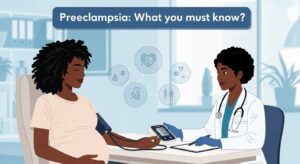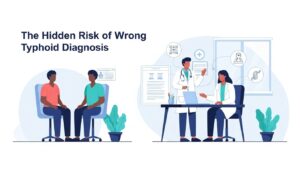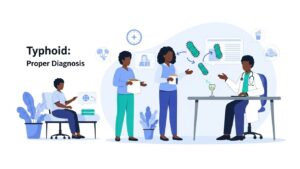When the Heart Abruptly Stops
Your heart circulates oxygen and nourishment to all of your organs, giving your body life every minute. However, life can drastically alter in a matter of seconds when that beat abruptly stops. Understanding cardiac arrest is essential because it’s a medical emergency that happens when the electrical system of the heart fails and the heart stops beating. It can result in death in a matter of minutes if treatment is not received right away.
At Well-Life Hospital, we consider prevention to begin with raising awareness. Knowing what cardiac arrest is, why it occurs, the major cardiac arrest risk factors, and applying simple cardiac arrest prevention tips can save your life.
What Exactly Is Cardiac Arrest?
When the heart abruptly stops pumping blood, cardiac arrest occurs. Cardiac arrest is an electrical problem in the heart, as opposed to a heart attack, which is brought on by a blockage in blood flow.
When this occurs:
- The heart ceases to beat correctly.
- The blood supply to the brain and other essential organs stops.
- The individual stops breathing and loses consciousness.
The pulse can be restored with prompt medical intervention, such as cardiopulmonary resuscitation (CPR) or the use of an automated external defibrillator (AED).
3. Cardiac Arrest vs. Heart Failure: Knowing the Difference
People frequently mistake cardiac arrest for heart failure, although the two conditions are not the same.
| Feature | Cardiac Arrest | Heart Failure |
| Nature | Sudden, emergency event | Gradual weakening of the heart |
| Cause | Electrical malfunction | Muscle weakness or valve problem |
| Outcome | Heart stops beating | Heart still beats, but inefficiently. |
| Treatment | CPR, defibrillation | Medication, lifestyle change, surgery |
Knowing this distinction makes it easier to decide when to take immediate action and when to look for long-term medical assistance.
Causes Cardiac Arrest
Several factors can cause cardiac arrest. Among the most common are:
Coronary artery disease:
- Coronary artery disease: The heart receives less blood when arteries are blocked.
- Arrhythmias (irregular heartbeat): Electrical irregularities in the heart’s rhythm
- Cardiomyopathy: Weakened pumping caused by thickened or strained heart muscle.
- Heart attack: Cardiac arrest can occasionally result from a heart attack.
- Genetic conditions: Risk may be increased by specific genetic cardiac abnormalities.
- Cardiac arrest can also result from severe electrolyte imbalance or drug addiction.
Our cardiology team at Well-Life Hospital employs cutting-edge diagnostic techniques, including blood tests, echocardiograms, and ECGs, to identify these risk factors early.
Identifying the Red Flags
Even though cardiac arrest frequently happens abruptly, some people show warning symptoms hours or even days in advance.
Watch out for:
- Pain or discomfort in the chest
- Insomnia
- Heart palpitations
- Lightheadedness or fainting
- Weakness or fatigue
- Unexpected perspiration
Seek medical attention right away if you experience these symptoms, particularly if you have risk factors like diabetes or hypertension.
How to Prevent Cardiac Arrest
Preventing cardiac arrest is possible through a combination of healthy habits and proactive medical care:
Eat Heart-Healthy Meals
Reduce salt, sugar, and processed fats. Focus on fruits, vegetables, whole grains, and lean proteins.
Stay Active
At least 30 minutes of moderate exercise most days of the week helps strengthen your heart and maintain healthy blood pressure.
Quit Smoking & Limit Alcohol
Smoking and excessive drinking increase heart disease risk; avoid both.
Manage Health Conditions
Keep conditions like high blood pressure, diabetes, and high cholesterol under control through regular checkups and prescribed medication.
Go for Regular Screening
Routine cardiac screening can identify silent risks before they become emergencies.
At Well-Life Hospital, our specialists provide comprehensive cardiac evaluations that include ECG, Echocardiography, and counseling personalized to your health profile.
Emergency Response’s Function
Being able to react appropriately can save a life. Call for emergency assistance right away if someone passes out.
- If you are trained, begin CPR by rapidly and forcefully pressing on the chest.
- Restart the heartbeat with an AED, if one is available.
Survival chances can be doubled or even tripled by taking quick action in the first few minutes.
Conclusion: Guard Your Heart. Live a healthy life.
Your heart deserves your care and attention since it works so hard. You may take control of your heart’s health by being aware of the signs of cardiac arrest, keeping an eye out for them, and adopting healthy behaviors.
From education and screening to treatment and support, we at Well-Life Hospital are dedicated to supporting you at every stage. Visit: welllifehospital.com/articles to find out more.






